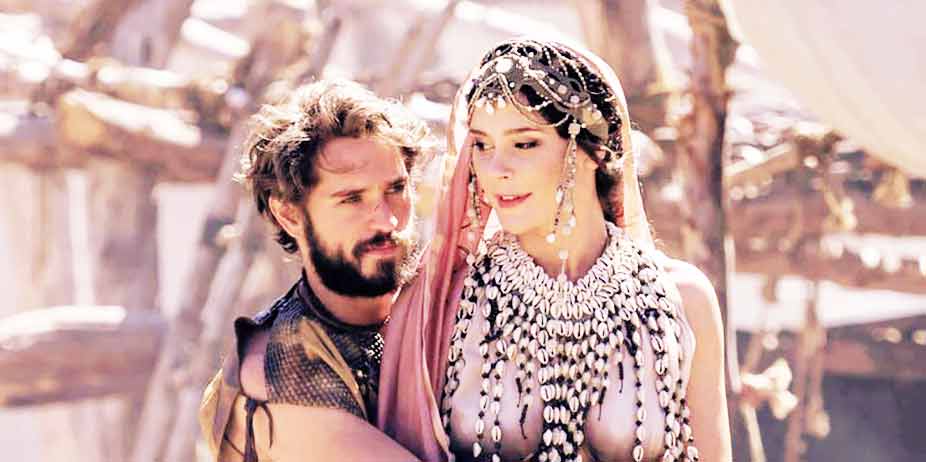
Troy: Fall of a City (2018)
Doomed lovers that bring despair upon their families run rampant in myth, from Tristan and Isolde to Guinevere and Lancelot, to Helen and Paris. The Iliad charts the destruction of an ancient city caught between warring armies when two lovers escape behind its walls, and this miniseries is a faithful representation of its events.
Young Paris (Louis Hunter) receives a visit from the gods, who offer him a choice between the deeper desires of his heart -- he chooses to love a beautiful woman, who will also bring him pain. Soon thereafter, he discovers he is not a humble goat farmer but the son of King Agammemon of Troy (Johnny Harris). After a prophecy claimed Paris would bring destruction to his kingdom, his father and mother (Francis O'Connor) decided to give the child away.
His first diplomatic mission includes traveling across the sea to visit King Menelaus (Jonas Armstrong), but once there Paris falls in love with Menelaus' wife, Helen (Bella Dayne). His decision to elope with her brings devastation, just as the gods foretold...
Since I haven't read the original myth, I carried no expectations into this series other than that it would have to be more memorable to me than the big-screen version from the last decade. It wasn't. I'm not sure what is with the trend of having unlikable characters on television these days, but I did not care about a single one! Most of the men are brutal and self-serving, with no redeeming value; Hector is nice, but foolish; Paris is a total selfish idiot. All the men on the 'other side' are jerks who either rape women or stand aside and allow it. I get it; the past sucked, it was unfair to women, I don't need to watch it in detail.
The casting choices also seem weird; in an attempt to be diverse, they've chosen lesser known actors (some of them quite good, others not), but I was never quite convinced by anyone's motives, especially that Paris and everyone else would bend over backward to keep this Helen. She's a bit bland, character-wise. Selfish and emotionally withdrawn with Menelaus, then traitorous and seemingly 'kind' with the populace. There's a bunch of side and minor characters, and a traitor's plot, but if you're not deep into mythology (I'm not) it won't leave a lasting impression.
The coolest aspect was the decision to include the gods as characters -- that's a fabulous twist I haven't seen before, and it added extra tension and depth, but I felt the camera wanted to see more of them. Making the story a competition between warring gods would have been a more unique approach. The costumes are good, and the period well-represented, for its goods and ills (ugh, sacrifices... ugh, dropping babies off parapets... ugh, passing around women) but overall it lacked much intensity or passion despite all the violence and sex. More depth in the characters, more insight into their emotions and drives and fears, and less trying to be 'sexy' might have helped.
Sexual Content:
A half dozen graphic sex scenes (including the start of
a threesome; two men and a woman kissing and touching
each other) with breast nudity; a man's bare backside; a
graphic clothed rape scene; men 'trade' women around /
demand men give up their women to be 'used' by other
men. Scenes with naked or topless women.
Language:
F-words, insults, uses of 'bastard' and 'whore.'
Violence:
Infrequent, sometimes implied and other times shown --
animals are stabbed, have their throats slit, and are
used as sacrifices (doves, horses, bulls); men bathe in
their blood. Brutal war scenes with blood spurting;
stabbed, shot with arrows, etc.
Other:
The 'gods' play roles in these characters' lives and
appear to them in visions.
